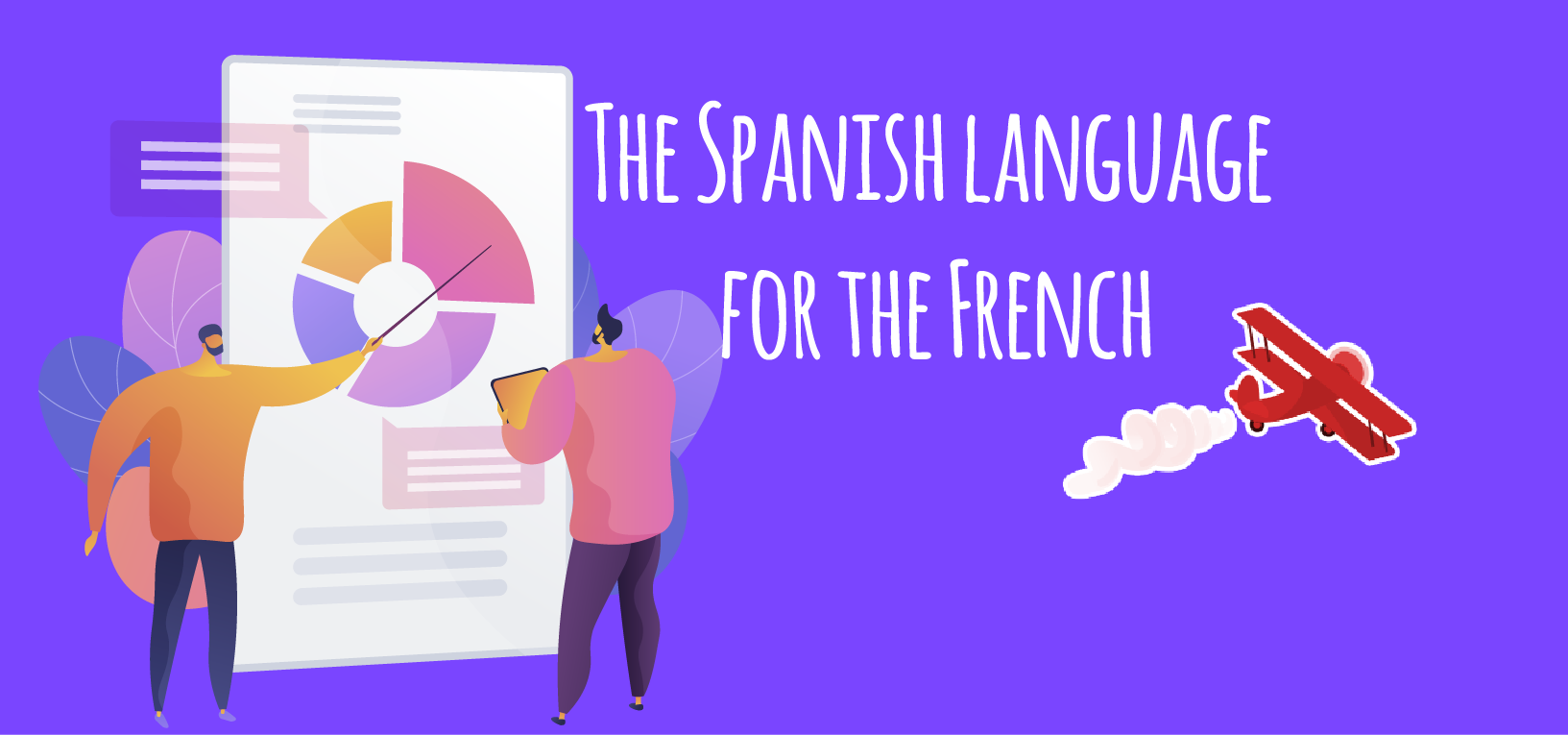The Spanish language for the French

The Spanish language for the French
We Spaniards have the belief and it is not known why, that a foreigner has much more facilities to learn our language than we do his. Especially, it happens to us with French ; however, there are many from the neighboring country who think the opposite. In this article we show you the difficulties that French people have to pronounce certain Spanish sounds and to understand some aspects of our grammar and that, that Spanish grammar is famous because it is written as it is pronounced or pronounced as it is written and therefore must be more obtainable.
The “g” and the “rr”
When a French begins in Spanish, he realizes that he cannot pronounce certain sounds such as the “g” that clears his throat or the “erre” that rolls to say about him. These two sounds are always difficult or very difficult for them to pronounce , because they do not exist in French and are therefore quite difficult for many French to understand.
The verbs ser and estar (to be)
Naturally, we are almost born knowing when to pronounce ser and when to be, but not French. The fact is that these two verbs mean in Spanish “to be”, but it is used very differently.
The verb “ser” indicates a permanent character of a person and therefore is immutable for example. I am Spanish = I am Spanish. On the other hand, the verb “estar” as long as it allows to place it in space and time indicates the temporal condition of a person (example. Estoy cansado: I am tired). Solving this question is difficult for French, because its language does not distinguish it.
The tonic accent
The tonic accent is another very notable difference that exists between the two languages, since its presence in Spanish contributes to making it more musical for those with a French accent. For the natives of the neighboring country this makes Spanish a pleasant language to listen to.
Some mistakes French students make
Young people especially try to take a shortcut to learn Spanish faster and naturally they make mistakes that they then have to correct. Such is the case of trying to invent a Spanish word from a French word by adding an “o” or an “a” at the end , of course it doesn’t work! Those who most often use it are high school students but the technique does not work and it turns out to be a disastrous technique.
For the French, the speed of speech of the Spanish is very fast, which according to them makes us sometimes difficult to understand. On the other hand, it is difficult for them to conjugate verbs . For them it is about juggling with irregular verbs, with the agreement of the tenses or the use of the imperfect subjunctive.
They are two sister languages
Despite what we have discussed, between French and Spanish there are many similarities that allow the French who is studying Spanish to learn it much faster than other languages, for example, German. The truth is that the two languages are two Romance languages so they have a multitude of words that derive from Latin.
Being two Romance languages they have a multitude of words derived from Latin. In this way, a large number of words have the same root and it is easy to recognize them. This means that everyone who speaks French already has an important vocabulary in Spanish made up of many words. For example, French words ending in -tion / -ion have their twin in Spanish, some examples:
- Ablution
“Ablución”
- Addition
“Adicción”
- Adoption
“Adopción”
- Ambition
“Ambición”
- Audition
“Audición”
- Aviation
“Aviación”
- Citation
“Citación”
- Coaction
“Coacción”
- Creation
“Creación”
- Datation
“Datación”
- Delation
“delación “
- Devotion
“Devoción”
- Dilation
“Dilación”
- Donation
“Donación”
- Dotation
“Dotación”
- Ediction
“Edicción”
- Election
“elección”
More similarities
- Another similarity, and no less important, is that both languages have the same 26-letter alphabet . They are the same letters, so it is easier for a French who learns Spanish to assimilate this language and write it.
- It is also an advantage that feminine names in French are usually feminine in Spanish , and also masculine ones. This avoids mistakes about the use of gender. But there are, however, exceptions that must be observed, such as “la langue” which means “the language” and which uses a different definite article for all of this.
- Finally, when it comes to conjugation , French and Spanish each have three groups of verbs. French has verbs that end with er / ir and re and Spanish verbs that end with ar / er and ir. Therefore, the conjugation is more understandable for a French who is learning Spanish, or vice versa.
For both the French who learn Spanish and the Spanish who study French, it is good for them to share these tips that allow learning the language under study in a much faster way:
- Take Spanish / French lessons to learn the basics of grammar / conjugation.
- Watch series / movies in Spanish / French
- Read books in Spanish that you already know in French or vice versa
- Daring without any restriction to speak in the language you are learning even if you make mistakes
- Listen to music in Spanish / French
- Translate song lyrics.
- Listen to the Spanish / French speaking people around you.
- Participate in language exchange meetings that are very effective.
- Listen to local radio and television
- Write vocabulary in a vocabulary book.


